MICCAI 2023

International Conference on Medical Image Computing and Computer Assisted Intervention
October 8-12, 2023 in Vancouver, British Columbia, Canada at the Vancouver Convention Centre
Every year, the MICCAI conference gathers the foremost minds in the fields of biomedical science, engineering, and clinical practice, spanning an extensive spectrum of disciplines intricately linked with medical imaging and computer-assisted interventions.
Kitware is excited to be a part of MICCAI to showcase our innovative medical and biomedical software. We are presenting several papers focused on topics varying from our SlicerSALT platform, to analyzing spinal vertebrates, to preventing glaucoma before it becomes harmful. In addition, we are leading a tutorial to discuss the implications of the medical regulatory process to both AI-development and software engineering.
In addition to our papers and workshops, Kitware is also participating in the MICCAI Society Mentorship Program. Stephen Aylward, Ph.D, senior director of strategic initiatives at Kitware, is serving as a mentor. The program connects students and early career scientists to support a nurturing scientific community and the development of early career scientists.
To learn more about Kitware’s medical computing expertise and the benefits of using open source technology, send us a message.
Kitware’s Activities and Involvement
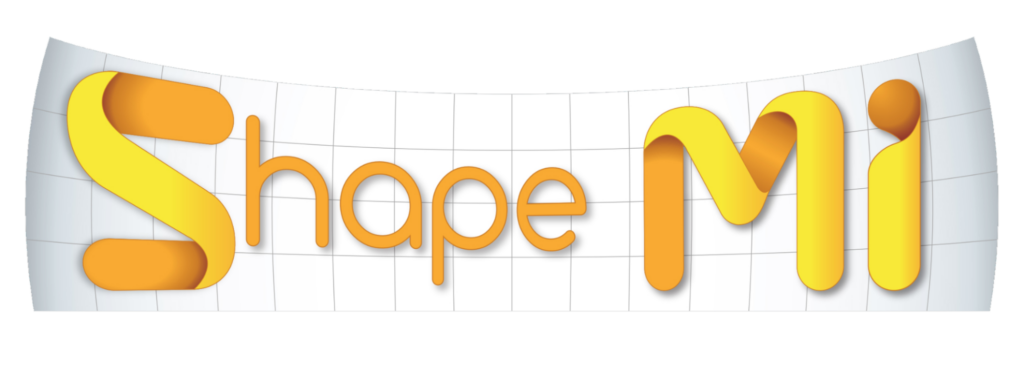
Shape in Medical Imaging
Workshop | October 8, Full Day
Beatriz Paniagua, Ph.D is co-organizing the workshop on Shape in Medical Imaging. The goal of this workshop is to be a venue for the presentation of the leading methods and applications for advanced shape analysis and geometric learning in medical imaging. Kitware is giving three presentations during the workshop for the following papers:
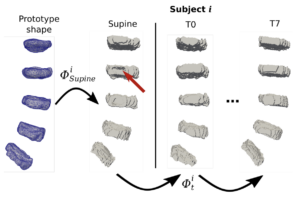
Geodesic Logistic Analysis of Lumbar Spine Intervertebral Disc Shapes in Supine and Standing Positions
Authors: Ye Han, Ph.D (Kitware); James Fishbaugh (Kitware); Christian Gonzalez (Washington University in St Louis); Donald Aboytes (Washington University in St Louis); Simon Tang (Washington University in St Louis); Beatriz Paniagua, Ph.D (Kitware)
Non-specific lower back pain (LBP) is a world-wide public health problem that affects people of all ages, but it is not well understood. In this paper we relate intervertebral disc anatomy with LBP, using advanced non-Euclidean statistical shape analysis methods. Our results indicate anatomy of the intervertebral discs can predict pain intensities prior to the onset of pain. This work has the potential to provide powerful information to the clinicians so they can make better treatment decisions.
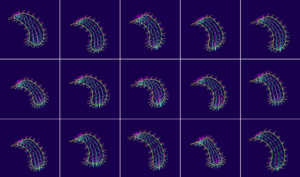
SlicerSALT: From medical images to quantitative insights of anatomy
Authors: Jared Vicory, Ph.D. (Kitware); Ye Han, Ph.D (Kitware); Juan Prieto (University or North Carolina at Chapel Hill); David Allemang (Kitware); Mathieu Leclercq (University of North Carolina at Chapel Hill); Connor Bowley (Kitware); Steve Pizer (University of North Carolina); James Fishbaugh (Kitware); Guido Gerig (NYU); Martin Styner (University of North Carolina); Beatriz Paniagua, Ph.D (Kitware)
3D shape lies at the core of understanding the physical objects that surround us. In the biomedical field, shape analysis has been shown to be powerful in quantifying how anatomy changes with time and disease. The Shape AnaLysis Toolbox (SALT) was created as a vehicle for disseminating advanced shape methodology as an open source, free, and comprehensive software tool. In this paper we present new developments in our shape analysis software package, including easy-to-interpret statistical methods to better leverage the quantitative information contained in SALT’s shape models and SlicerPipelines a programming free way to create Slicer processing workflows.
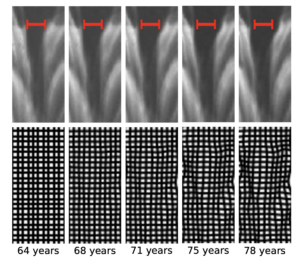
Modeling Longitudinal Optical Coherence Tomography Images for Monitoring and Analysis of Glaucoma Progression
Authors: James Fishbaugh (Kitware)*; Ronald Zambrano (NYU Langone Health); Joel Schuman (New York University); Wollstein Gadi (NYU Langone Health, NYU Eye Center); Beatriz Paniagua, Ph.D (Kitware)
Glaucoma causes progressive visual field deterioration and is the leading cause of blindness worldwide. It is critically important to detect glaucoma early and closely monitor progression to preserve functional vision. In this paper we present an algorithm that will perform hierarchical geodesic modeling at the imaging level, considering 3D optical coherence tomography (OCT) images as observations of structural change over time. Our preliminary experiments demonstrate a greater magnitude of structural change associated with glaucoma compared to normal aging.
Medical Device Software
Tutorial | October 12 from 1:30-6 PM PT
Meeting Room 12
Andinet Enquobahrie, Ph.D. is co-organizing the tutorial and giving a talk about the role of open source software in regulated medical device software application development. This tutorial aims to help researchers bridge the gap between academia and the medical device industry. Learners will discover the implications of the medical regulatory process to both AI-development and software engineering.

Workshop of Advances in Simplifying Medical UltraSound (ASMUS)
Workshop | October 8, Full day
Stephen Aylward, Ph.D is on the organizing committee for the ASMUS workshop. This workshop will include live practical technology demonstrations, paper presentations, Q&A sessions, and keynote talks.
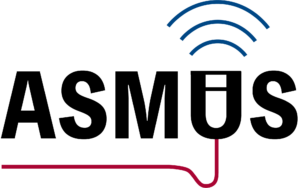
AI Visualization: Jupyter Notebooks to Javascript Applications
Tutorial | October 8, Half day
Stephen Aylward, Ph.D is giving an invited talk on Kitware’s tools for AI visualization at the IDC Tutorial, “NCI Imaging Data Commons: Curated data and cloud-based reproducible AI workflows“. This talk will encompass Kitware’s tools such as itkWidgets and VolView.
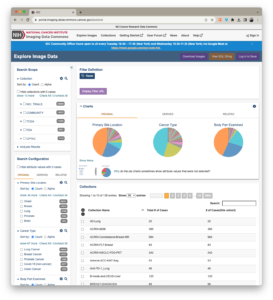
Developing for the Medical AI Project Lifecycle with MONAI
Tutorial | October 8 from 8 AM – 3 PM PT
Co-Organized by Stephen Aylward, Ph.D
Discover the future of medical imaging analysis through the comprehensive tutorial provided by MONAI at MICCAI 2023. This tutorial aims to empower attendees with cutting-edge insights and practical skills in utilizing the MONAI framework for advanced medical image analysis tasks. By exploring its functionalities and workflows, participants will gain a deep understanding of how to accelerate their research and development in medical imaging, paving the way for enhanced diagnostics and healthcare outcomes.

NCI Imaging Data Commons: Curated data and cloud-based reproducible AI workflows
Tutorial | October 8 from 8:55 – 10 AM PT
Speaker: Stephen Aylward, Ph.D
During this tutorial, Stephen will be giving a talk on AI Visualization: jupyter notebooks (itkWidgets + MONAI) to javascript applications (VolView). He will give an overview of how these open source tools can be used with the NCI Imaging Data Commons (IDC).